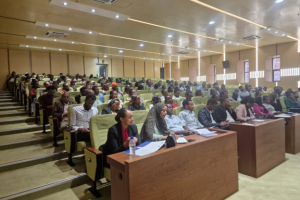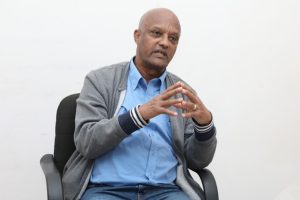
Numbers of fatalities resulting from terrorist attacks perpetrated by violent extremist groups have risen steeply over the past sixteen years in Africa. Between 2011 and 2016 more than 33,300 Africans had lost their lives due to extremism, disclosed the United Nations Development Program (UNDP).
The news release from the European Union- united Nation’s cross border project forwarded the growth of violent extremism has set in motion a dramatic reversal of development gains Africa, and is also threatening to stunt prospects of development for years to come. The continent bears the brunt of the impact of terrorism in lives lost, economies ruined and relationships fractured.
Lives of many Africans were affected through displacement or loss of a breadwinner. Bokoharam’s operations alone have resulted in deaths of over 17 thousand people and displacement of more than 2 million people. Alshabab’s operations in the first four months of 2017 resulted in death and/or of 337 individuals, learnt from the report by UNDP.
Approached by The Ethiopian Herald Malin Fezehai, a Swedish New York based photographer and filmmaker, bouncing around the Middle East, Africa, Europe, and America, and host of the photo exhibition entitled ‘stories of survivors’ told thatthe photos illustrate the brutal threatinstigated by the extremists in different parts of Africa. Fezehai forwarded that she has hosted a number of exhibitions across Europe and Asia in countries such as USA, Denmark, Brussels, Holland, and Sweden.
The feedback from the viewers of the exhibition was positive. They suggest making the issue of peace more individual, she said. Due to the political and economic contexts in Africa, the youngsters feel excluded from the larger society. And when they do not have business to run, they decide to join the extremist groups. Thus, Africa needs to work on the youngsters that affect the social, political, and economic aspects of the continent negatively, as to Fezehai.
Fezehai added that that specific exhibition portrays the emotional and physical danger that happened to the survivors of the attacks. It displays the different courses of the attacks by observing to the survivors of the attack. One of the photos at the exhibition portrays Ahmed Hadji, Ugandan youngster with one leg injured due to the ‘Kampala bombing’ while trying to save a woman. “The artist revealed that life in Africa, specifically, sub-Saharan region does not count.
A large number of people are dehumanized by the extremists. In addition, this broke my heart. Now I am fighting against such a narrative,” she noted. The artist also explained that the violent extremism is negatively affecting the economy of Africa. By working to end such violence, the continent would save the loss of human and economic infrastructure. The continent misses is posing thousands of human infrastructure every year due extremism.
Many families are losing their breadwinners, as to Fezehai. The youngsters who join the terrorist groups were misguided and misuse their capacity. They are wrongly stimulated and illdisciplined. They are recruited, trained, empowered and radicalized by the senior members of the groups. The youngsters should use their capacity for peace, stability, and hard work so to see Africa blooming, as to the artist.
Fezehai also mentioned that Ethiopia has been safer when compared to other African countries. The country has never encounteredmass destruction by extremists. She also indicated that Africa needs the people that work together in unity to realize a prosperous and peaceful continent, she said. “A unified Africa is better than a divided one. Africa needs to come into economic, social, and political unity since they do have various commonalities.
They need to come together to work in unity. This is the only way out of all these problems. Thus, African Union needs to work aggressively on this the issue of integration of Africa”, said Fezehai. Annelore Beulem, UNDP Africa Program Specialist for Violent Extremism, on her part, added that the issue of marginalization from the cities is found to be the root cause of violent extremism in Africa. The youths are being distinct from the capital cities with no social life in them, she said.
Africa leaders need to focus on the people living in the margin of the country in order to solve the issue of extremism in the continent. They need to set a project to involve them in the economic activities that go on in the cities, suggested Beulem. UNDP Violent Extremism Project focuses on eighteen African countries that would to support counter the violence in the continent. ‘The stories survivors’ would support the report ‘the journey to violent extremism’ by UNDP. It would generate the expected outcome, as to the specialist.
The Ethiopian Herald, March 30/2019
BY GETAHUN LEGESSE




